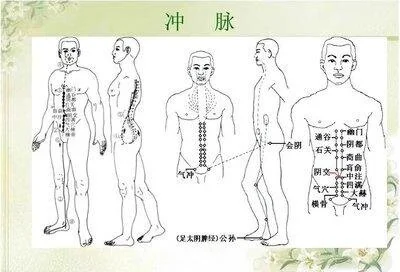Menstrual Discomfort: The Culture-Bound Syndrome
Author: Blake Estape L.Ac.
As a man I will never understand the full spectrum of feelings and emotions a woman goes through during her cycle. Although there is evidence to suggest men go through cycles of their own, they do not happen to the same degree with which women – especially Western women – suffer them.
It’s fascinating how much attention is paid to this process in the Western world. In the United States women were sometimes placed in seclusion when it was their time of the month, as it was seen as dirty or shameful. Those who were stricken with more severe symptoms were called hysterical and even locked away in asylums. To this day it’s an uncomfortable subject that most would rather not address. No wonder, then, that women in western cultures seem to suffer so much more from symptoms of their cycle than in other regions of the world.
That fact is often a surprise, but many studies have shown that women in the United States and UK suffer greater discomforts than their counterparts in Asia and elsewhere. It was discovered that cultural influences play a significant role in how women feel – physically and emotionally – as they go through their period.
I may not have personal experience with periods, but I can speak anecdotally to how women around me handled the topic while I lived in China. Female coworkers were not shy to tell me about their struggles with menstruation, and this would often become a conversation involving many women around the clinic talking about their tried and true methods for relief.
Westerners tend to poo-poo these ideas as ‘old wives tales,’ but clearly there is something they’re doing that is effective. I’ll share what I learned and have employed to great effect with my patients, but first it may help to explain this process from a Chinese medicine perspective.
Skip to the bottom of this article if you’re just interested in ways to help yourself feel better.
What is a Period?
Put very simply, there is a channel that urns along the central line of the anterior body we call the Chong Mai, or Penetrating Vessel. During the buildup to a period, blood fills this vessel and symptoms of blood stagnation occur; bloating, cramping or stabbing pain, palpitations and so forth. This vessel runs all the way from the uterus up to the brain, which explains why some women may experience migraines as well as shifts in mood. Once the period concludes and this vessel is empty, symptoms of blood stagnation subside.
Of course things are a lot more complex than that, but it’s helpful in this context to think of the situation as a collection and release of blood. This physical substance can be in excess or it can be deficient. It can be acted upon by other systems. Ultimately, though, it is this ebb and flow that determines how a woman feels during her period. One’s focus should be about maintaining an appropriate rhythm.
It is my experience that in the West we prefer movement. We pride ourselves on productivity and loathe stagnation. What’s ironic is that our excessive lifestyle often leads directly to stagnation. From our diet to our environment, we rush from one extreme to another, and our bodies struggle to keep up. Thus it is the prevailing view in traditional Chinese medicine that menstrual symptoms can be improved if we make important adjustments to lifestyle.
So What Can I do About It?
Cold contracts. Here in southern Florida we escape the heat as much as we can by hopping from one air-conditioned bubble to another. In essence this means we’re racing from a hot environment to a cold one, often without much time in between to acclimate. Our bodies – not expecting this cold – contracts to protect itself and thus blood flow is slowed. Over a long period of forced contracture and release, our natural rhythm is overridden. Keeping covered and not exposing the abdomen to blasts of cold air can help to ward off blood stagnation and uncomfortable cramps.
This principle stands internally as well. Cold drinks and raw foods have the same effect on the organs as intense air conditioning. Appropriate food and drink sets a foundation for health, and in this age of fad diets it’s often the first thing to go.
Here are some basics for foods to avoid and employ if menstrual discomfort is something you suffer from:
To Avoid:
· Raw foods (salads, sushi)
· Fruit (watermelon, apple, banana)
· Alcohol
· Processed sugar
· Submersion in cold water
· Direct wind on the lower abdomen
· Soy products
· Dairy
To Increase:
· Vitamin C (kiwi, broccoli, strawberries)
· Vitamin E (spinach, asparagus, avocado)
· L-arginine (turkey, peanuts, lentils)
· Zinc
· Black Cohosh
Often I see considerable results just with these adjustments, but extra steps may be needed. Here are some tips:
· Take a hot bath.
· Drink ginger and cinnamon tea with jujube.
· Use a heating pad.
· Use moxa on the lower abdomen from Ren 8 to Ren 4, and Kidney 1.
Finally, regular acupuncture can help to utilize your body’s systems to reestablish homeostasis. Eliminating causative factors will set the stage for acupuncture to remind the body of its natural state. If you would like to know about how acupuncture can help, schedule a consultation to discuss specifically what can be done to bring you back to health.
Holland, K. (2018, May 03). Do Cis Men Have Periods? The Truth About Irritable Male Syndrome. Retrieved January 31, 2021, from https://www.healthline.com/health/do-men-have-periods
Davis, C., Sloan M., Tang C. (2014) Journal of Woman’s Health Care. Premenstrual Distress among Caucasian, African-American and Chinese Women.

